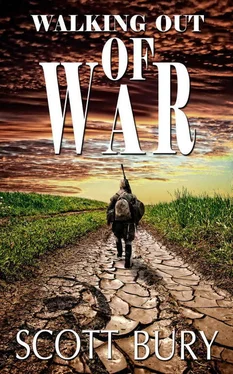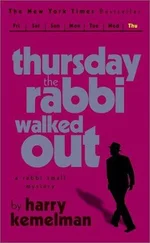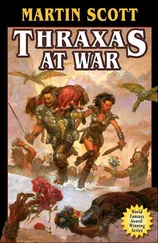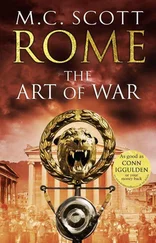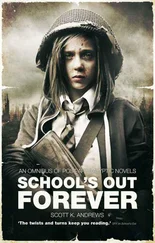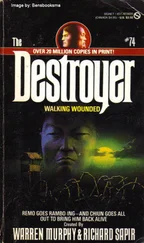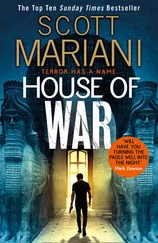It’s too dangerous to be a Ukrainian today , he thought. As usual .
The Ukrainian refugees in Landeck, “displaced persons,” filled their days playing music, building new barracks or talking among their countrymen, enquiring about their friends and families. Most refused the directives to return to the USSR, especially the thousands of teachers, lawyers, engineers, physicians and university students. They simply refused to board trains and trucks headed eastward, and instead wrote letters applying to emigrate to the United States, Canada, Australia, Britain, France, even Brazil and Argentina.
Many managed to get authorization to emigrate to those countries. In the meantime, the thousands of Ukrainians still in the camps in the British, American and French-occupied zones in Germany and Austria organized elementary and high schools. They organized churches, orchestras and choirs, performed plays and concerns. They set up libraries and published thousands of periodicals and books.
And being Ukrainians, they argued about politics, religion and whether the Bandera or Melnyk factions of the Ukrainian National Organization was the legitimate government of a theoretical free Ukraine.
American and French doctors and nurses treated wounds, colds, flus and malnutrition. Civilian workers who spoke English, French or, occasionally, German, gave out clothes, food, towels, soap and dozens of other supplies that people needed every day.
For Maurice, time dragged. Wanting to stay away from the Ukrainians, he had little opportunity for social interaction, especially since Ukrainians made up a greater proportion of the population of the Landeck camp. Maurice missed the conversations he was used to and ached to join in the debates over politics. But it was too dangerous for anyone to find out that he had been part of the Red Army that took Berlin.
With little else to occupy his mind, he worried about his mother. She couldn’t know whether he was alive or dead. For that matter, he had no idea whether she was still alive, or what the communists might have done to her. Maurice spent the next few days avoiding the Babiaks and other Ukrainians. He felt nervous all the time and kept looking to the camp gates for trucks with a red star.
The summer and fall passed. Winter was hard in the camp. The inhabitants worked to improve the insulation of the barracks and secure more fuel. American, French and other United Nations officials doled out what clothing and other supplies they could, but existence in the camp was miserable.
Maurice finally gave up isolating himself from the other Ukrainians and joined in the efforts to improve living conditions. He went out of the camp with the Babiaks to search for food and odd jobs for the local Austrian inhabitants.
One day, they woke to find the countryside covered in fresh snow. Maurice and the Babiaks wandered out, looking for scrap wood to burn.
Mihach was acting strangely. He seemed filled with nervous energy, jumpy, smiling without reason. He looked at his cousins and Maurice as if he were about to tell them something, but then turned away.
“For god’s sake, Mihach, what is it?” Ivan demanded, but Mihach just shook his head.
When they reached the base of a disused ski resort on the edge of town, Mihach reached into his coat pocket and pulled out an old, battered camera. Grinning, he brandished it for his companions.
“Where did you get that?” Ivan asked.
“A farmer I cut some wood for gave it to me,” he answered. “He said he had no money, but he gave me this camera. It even has film in it.”
“Why didn’t you take some of the firewood as payment?” Ivan asked.
“He said he needed all of it for his family,” Mihach said. “But I wanted the camera, anyway.” He stepped back from them and squinted through the viewfinder. “Smile!”
“Have you ever used a camera, Mihach?” Maurice asked.
“No, but it can’t be hard. The farmer showed me. You look through here, then push this button.” They heard the shutter click. Mihach lowered the camera and thumbed a small wheel on the top. “Now, you wind the film to the next… um, picture.” He raised the camera again. “Come on, boys, do something interesting.”
Ivan and Slawko looked at each other. Maurice picked up a handful of snow and threw it at Ivan, smacking him in the chest. “Hey!” he said, but Maurice threw another snowball.
Soon, the brothers and Maurice were chasing each other across the field. Ivan threw a snowball and Maurice tackled him, pushing him onto the field.
“Hold it!” said Mihach. “That’s perfect. Slawko, get in there, too.”
Maurice picked up another handful of snow as he reclined against the sprawling Ivan. Slawko knelt behind them and grinned at the camera, and Mihach snapped the shot.

On a sunny day, Maurice leaned against the wall of a building near the camp’s main gate, huddling against the wind sweeping down from the mountains. He heard voices and snapped his head up. Did I just hear Russian?
Then he saw what he had dreaded most: a Studebaker truck, its back covered in canvas that bore a red star, idled just inside the gate. Red Army. They’ve come for me.
On the passenger side running board, a young man in a Soviet commissar’s uniform argued with a U.S. sergeant standing on the ground in front of the truck. Three other GIs stood in the mud around the truck, holding rifles across their chests. They looked nervous, and so did the driver, but the sergeant seemed relaxed. “Take me to the commandant of this camp!” the commissar on the running board shouted in Russian.
“Take it easy, Eye-van,” said the sergeant in lazy, stretched English vowels. He had black hair under his cap, a blunt nose and thin lips. Even though he was clean-shaven, his dark stubble was already visible in the morning. “Now you just back up your Russkie truck back through those gates and wait a spell.”
“Out of the way!” the commissar shouted, still in Russian, sweeping his arm across the field. There was no way anyone could misunderstand what he wanted. He pointed into the camp. “We are coming to see the commandant and to find deserters!”
Maurice felt cold.
But the sergeant just shook his head. “You ain’t comin’ another inch into this here camp,” he drawled. He stepped closer to the front of the truck, then put his hand on the grille as if he were going to push it out the gate. “Now back up.”
“Out of the way!” the commissar shouted.
“Speak English, Russkie!” the sergeant snapped. “Now get the hell out of here before I order my men to fire!” The soldiers around the truck brought their rifles to their shoulders.
The commissar’s eyes narrowed, but he did not reply. He snarled an order at the driver, then jumped to the ground, slamming the truck’s door. The truck backed out, gears grinding, onto the road just outside the gates. The commissar stepped closer to the sergeant. “Take me to your commander,” he ordered.
The American stepped until his nose nearly touched the commissar’s. “I told you to speak English if you want somethin’,” he drawled. “Now, turn around and walk out of here while you still can walk on your own.”
A young American lieutenant strode across the camp toward the truck. “What’s going on here, Sergeant Brown?”
Without moving from the commissar’s face, the sergeant said “Eye-van here wants to drive his commie-painted Studebaker into the camp with a buncha Red riflemen. I told him no.”
“What do you want, mister?” the officer asked the commissar.
The commissar turned to the lieutenant. “You are not the commandant of this facility! I demand to see the man in charge!” he said in Russian.
Читать дальше
